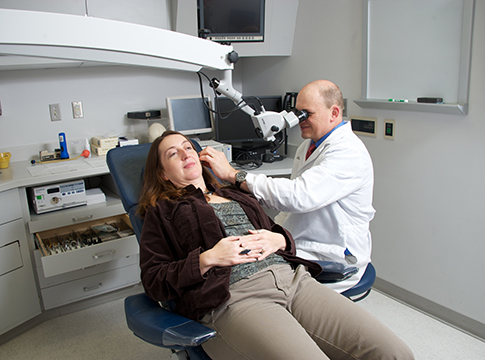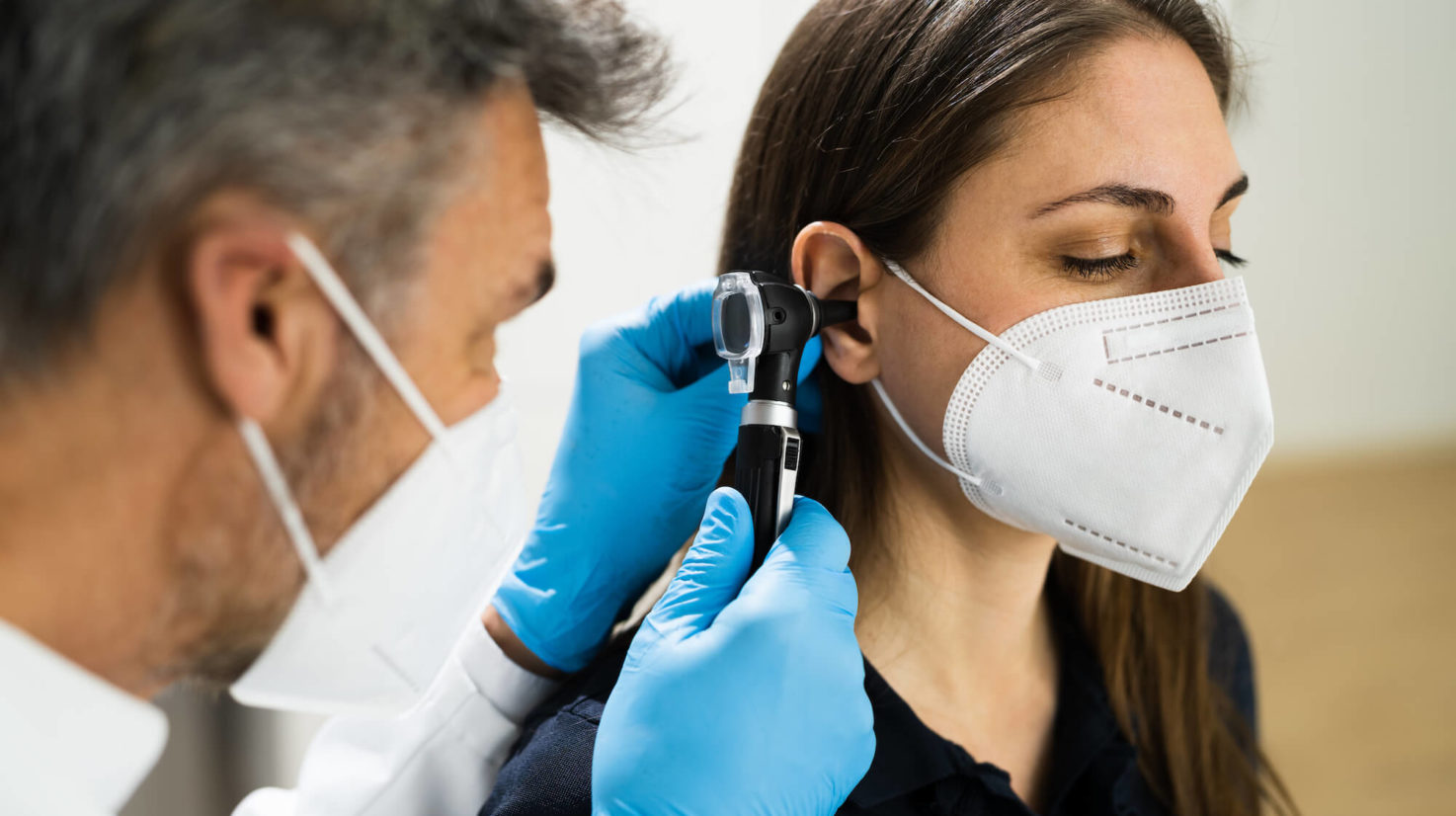Signs That It's Time to See a Voice Doctor
Signs That It's Time to See a Voice Doctor
Blog Article
Checking out the Area of Otolaryngology: What to Expect When You Speak With an ENT
Otolaryngology, typically described as ENT, includes the medical diagnosis and treatment of throat, nose, and ear disorders. For those experiencing associated problems, getting in touch with an ENT specialist can offer clearness and alleviation. Comprehending what to anticipate during such appointments is necessary for effective interaction and care. This introduction will outline crucial facets of the ENT experience, including usual reasons for check outs and the procedures included in diagnosis and treatment.

Understanding Otolaryngology: An Introduction
Otolaryngology, often described as ENT (Nose, throat, and ear) medicine, is a customized branch of medicine that concentrates on the medical diagnosis and therapy of conditions influencing these vital locations of the human body. This area incorporates a variety of conditions, consisting of those pertaining to hearing, equilibrium, respiratory feature, and speech. Otolaryngologists are educated to handle both clinical and medical therapies, making use of advanced techniques and technologies. Their expertise extends past typical conditions, resolving problems such as allergies, sinus infections, and hearing loss. In addition, they play an important function in the management of head and neck cancers cells, providing detailed treatment customized to individual client needs. Generally, otolaryngology continues to be important for maintaining health and lifestyle in damaged individuals.
Typical Factors to See an ENT Expert
Many people seek the expertise of an ENT professional for a variety of reasons, showing the diverse nature of problems that impact the nose, ear, and throat. Common issues consist of persistent sinusitis, which often brings about relentless nasal blockage and face discomfort. Allergic reactions and their linked signs and symptoms, such as sneezing and itching, additionally trigger check outs to these experts (Otorrinolaringologia). Hearing loss, whether abrupt or steady, is one more considerable factor for appointment. On top of that, people may look for analysis for throat disorders, consisting of relentless hoarseness or ingesting problems. Rest apnea, identified by interrupted breathing during sleep, is regularly addressed by ENT specialists also. Each of these problems highlights the relevance of specialized treatment in handling complicated ENT-related wellness concerns
Getting ready for Your ENT Appointment
When getting ready for an ENT visit, it is important to collect appropriate info and take into consideration any type of specific problems. Clients ought to assemble a comprehensive clinical history, including previous ear, nose, or throat issues, surgeries, and present drugs. Recording signs-- such as regularity, seriousness, and period-- can give valuable insights for the ENT professional. In addition, individuals ought to prepare a listing of inquiries they want to ask, ensuring that all problems are resolved during the visit. Bringing along any type of pertinent medical records or examination results can additionally aid the ENT in understanding the client's condition. Lastly, individuals need to verify their visit details, including day, area, and time, to reduce any type of final confusion. Appropriate preparation can boost the performance of the consultation and lead to much better end results.
What to Expect Throughout the Assessment
As the assessment starts, the patient can expect to participate in an extensive conversation with the ENT expert about their symptoms and case history. The expert will ask about the period, frequency, and seriousness of symptoms such as hearing loss, nasal blockage, or aching throat. In addition, the individual's previous clinical conditions, medications, and any kind of pertinent family history will be assessed, assisting the expert in developing a complete understanding of the person's health and wellness. The ENT might likewise inquire about way of living aspects, such as exposure to toxic irritants or allergens. This open dialogue develops a foundation for the examination, ensuring that the individual's worries are addressed and setting the phase for any type of required evaluations or recommendations for treatment.
Diagnostic Tests and Treatments in Otolaryngology
A variety of diagnostic examinations and procedures are important in otolaryngology to accurately assess and diagnose problems influencing the nose, ear, and throat. Common tests include audiometry, which measures hearing function, and tympanometry, examining center ear pressure. Nasal endoscopy permits visualization of the nasal passages and sinuses, while laryngoscopy analyzes the throat and vocal cords. Imaging techniques, such as CT scans and MRIs, supply in-depth views of head and neck frameworks. Allergy testing might also be carried out to recognize triggers for sinus or respiratory issues. These analysis tools enable ENT professionals to establish an extensive understanding of people' conditions, making certain customized and reliable management strategies. Proper diagnosis is vital for effective therapy results in otolaryngology.
Therapy Options Used by ENT Specialists
ENT specialists offer a variety of treatment alternatives tailored to resolve details problems impacting the throat, ear, and nose. These therapies range from conservative techniques, such as medication and way of living alterations, to even more invasive Get the facts procedures. For example, allergic reactions might be handled with antihistamines or immunotherapy, while chronic sinus problems could need nasal corticosteroids or sinus surgical treatment. For hearing loss, ENT specialists frequently recommend listening device or surgical interventions like cochlear implants. In instances of throat conditions, alternatives can consist of speech treatment or surgical treatments to eliminate blockages. Furthermore, they may offer support for handling sleep apnea, consisting of using CPAP gadgets or surgical treatments. Generally, the goal is to improve people' lifestyle through customized treatment and efficient therapy methods.
When to Look For Follow-Up Care With an ENT
When to look for follow-up care with an ENT professional is vital for handling ongoing signs or issues related to throat, ear, and nose problems, acknowledging. People should take into consideration arranging a follow-up visit if signs and symptoms persist regardless of initial treatment, such as persistent ear pain, nasal congestion, useful reference or throat pain. Changes in hearing, equilibrium issues, or unusual nasal discharge might additionally warrant additional analysis. Additionally, if a client experiences side effects from suggested medications or has undergone a surgery, follow-up treatment is important to keep an eye on healing and deal with any kind of problems. Prompt examinations can guarantee effective management of conditions, prevent possible problems, and give satisfaction concerning one's wellness. Looking for follow-up treatment advertises proactive health monitoring in otolaryngology.
Frequently Asked Questions

What Credentials Should I Seek in an ENT Specialist?
When looking for an ENT professional, one must search for board certification, pertinent experience, and strong individual evaluations. In addition, reliable communication skills and a thoughtful technique can significantly boost the total treatment experience.
How Do I Select the Right ENT for My Needs?
Choosing the appropriate ENT expert involves assessing their qualifications, experience, and individual reviews (Otolaryngologist). It is necessary to ponder their communication style and method to therapy, guaranteeing they align with the person's particular health requirements and choices
Are There Any Type Of Risks Connected With ENT Procedures?
The dangers linked with ENT procedures may include infection, bleeding, anesthetic difficulties, and potential damages to bordering structures. Individuals ought to review these risks with their medical professional to comprehend specific problems and guarantee notified decisions.
Just How Can I Manage Anxiety Prior To My ENT Visit?
To handle anxiousness prior to an appointment, people can exercise deep breathing workouts, imagine positive outcomes, prepare questions in development, and seek assistance from good friends or family members, fostering a sense of confidence and peace.
What Should I Do if I Experience Adverse Effects From Treatment?
If side impacts from treatment take place, the person needs to quickly report them to their health care copyright. Changes to treatment or additional interventions may be essential to ensure safety and efficiency in managing their condition - Voice. As the appointment begins, the individual can expect to engage in a detailed conversation with the ENT specialist concerning like this their symptoms and clinical history. These diagnostic tools allow ENT professionals to create a comprehensive understanding of patients' conditions, ensuring customized and reliable monitoring plans. ENT professionals use a variety of therapy choices customized to attend to specific problems impacting the throat, ear, and nose. When seeking an ENT specialist, one must look for board accreditation, appropriate experience, and strong individual evaluations. Choosing the appropriate ENT professional entails reviewing their certifications, experience, and client reviews
Report this page